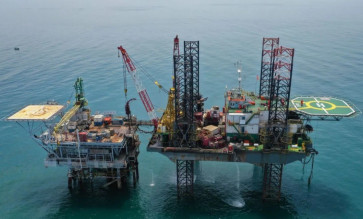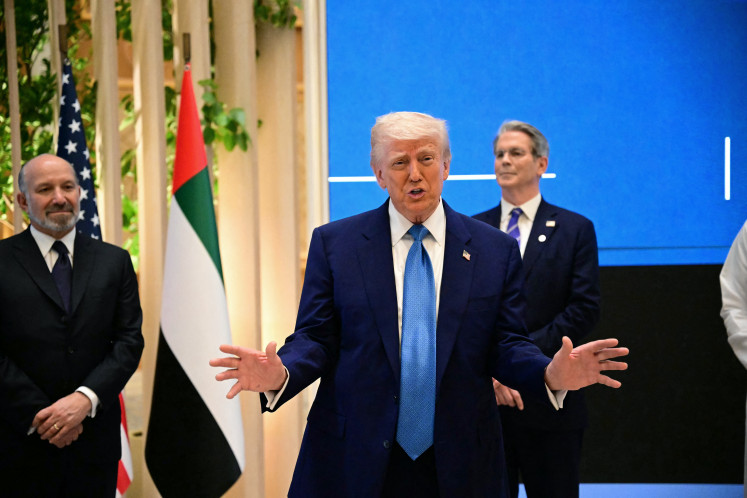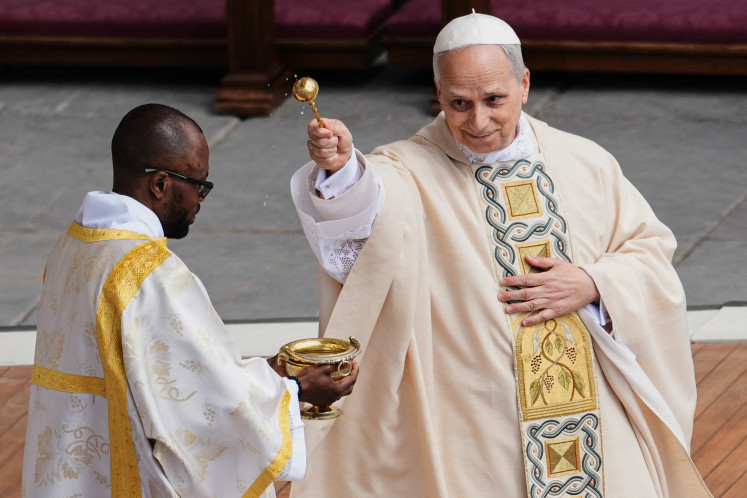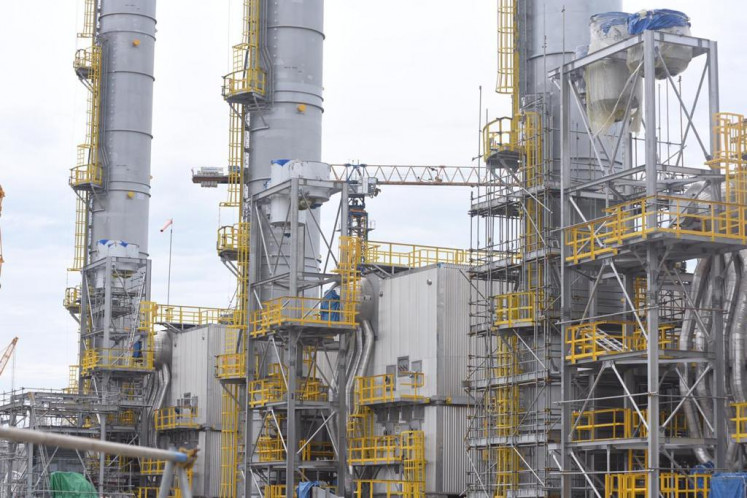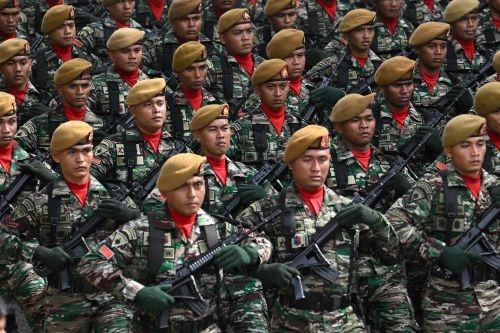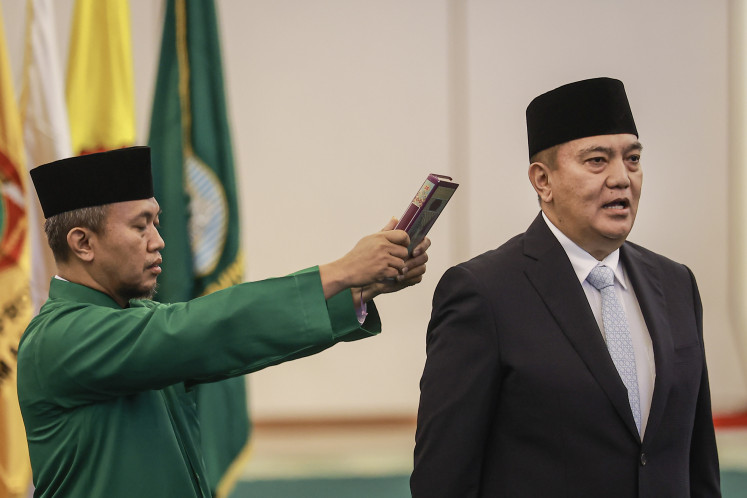Economic team needs trust
At the end of the day, the fundamental asset of the economic team is the public’s trust in its integrity. A lack of trust in the economic team among businesspeople would cause problems in policymaking and implementation.
Change text size
Gift Premium Articles
to Anyone
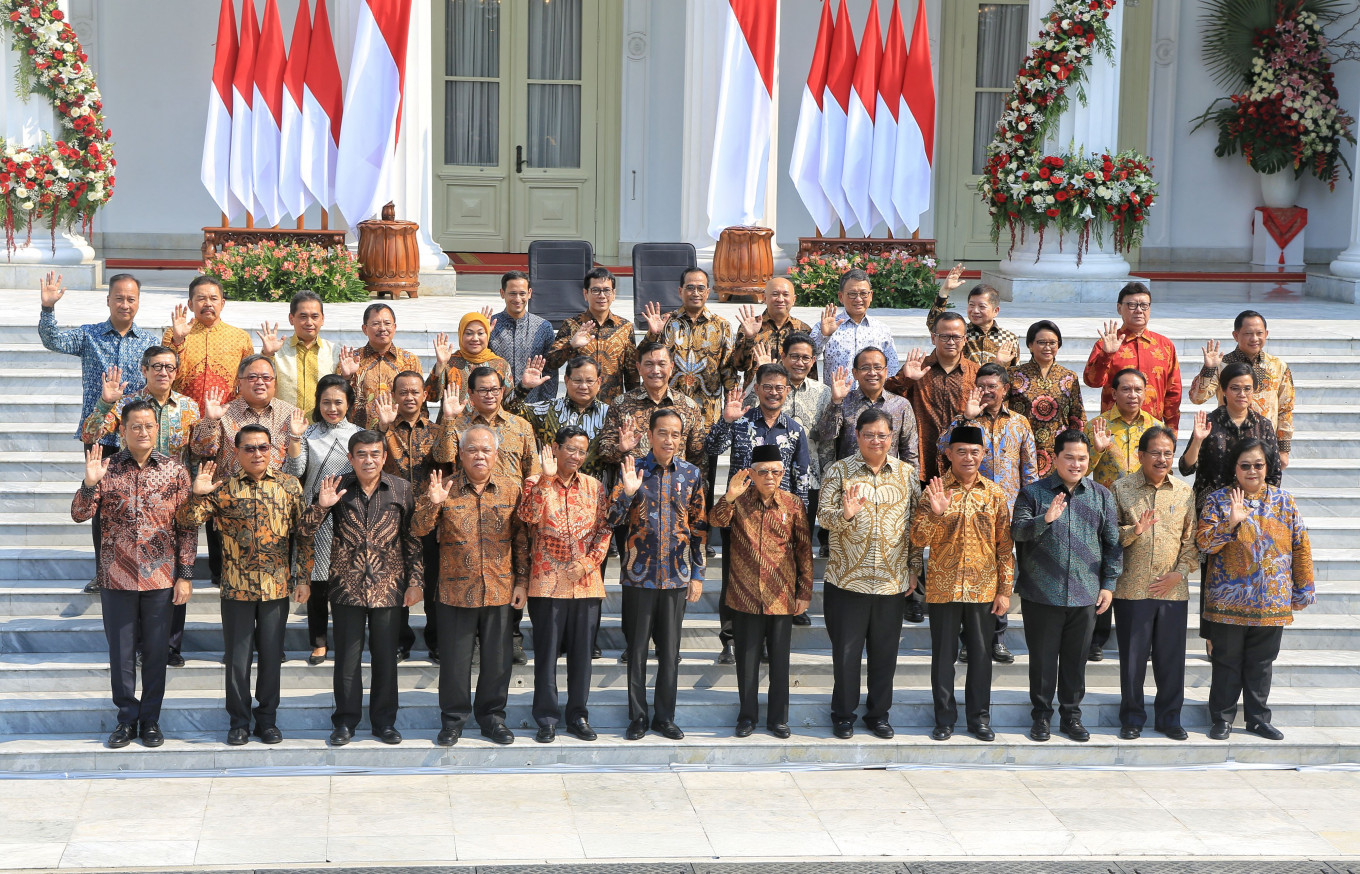 Indonesia Onward Cabinet after the announcement on Wednesday. (JP/Seto Wardhana)
Indonesia Onward Cabinet after the announcement on Wednesday. (JP/Seto Wardhana)
T
he makeup of the economic team in President Joko “Jokowi” Widodo’s new Cabinet appears less worrisome than we had feared in light of the competing demands the President faced from his six coalition parties.
In fact, by reappointing Sri Mulyani Indrawati as the finance minister, macroeconomic stability seems to be the central theme of the new economic team. True, macroeconomic stability isn’t everything, but without a minimum level of macroeconomic stability, nothing else in the economy would happen because businesses would find it almost impossible to make reasonable risk calculations.
We are confident that with Sri Mulyani as the fiscal manager and the current Bank Indonesia board of governors as the monetary manager, the country will have strong and cohesive macroeconomic management, especially in coping with the global economic slowdown, uncertainty and mounting trade protectionism across the world.
Yet, it is even more encouraging that Jokowi did not transfer the management of foreign trade to the Foreign Ministry, as was widely speculated. Nor did he set up an investment ministry. He maintained the Investment Coordinating Board and its chief as part of his Cabinet.
The President instead put investment affairs under the oversight of the coordinating maritime affairs minister, who will also supervise the ministries responsible for energy and mineral resources, fisheries, tourism and transportation. Luhut Pandjaitan was reappointed as the coordinating minister. As coordinating maritime affairs minister for the past four years, Pandjaitan, a retired Army general, has become known as “Mr. Doer”, a no-nonsense confidante of Jokowi, who does not hesitate to bulldoze bureaucratic rigidities to get things accomplished.
On a negative note, appointing Airlangga Hartanto, chairman of the Golkar Party, as the chief economic minister is not likely to contribute much to coordinating and accelerating economic structural reforms, unless Jokowi gives this portfolio a stronger mandate and authority to ensure other ministers handling economic affairs toe the President’s line.
A lack of authority and overlapping laws and regulations left Darmin Nasution, the previous chief economic minister, virtually powerless to manage other ministers under his oversight.
But all in all, though other ministers in charge of trade, industry, fisheries, labor, agriculture and national development planning are representatives of coalition parties, we will give them the benefit of the doubt. We think Jokowi has taken great lessons from the formation of his first Cabinet and has examined the members’ leadership and managerial capabilities and experiences.
At the end of the day, the fundamental asset of the economic team is the public’s trust in its integrity. Building upon this asset will make it much easier for it to sell policy reforms to the market, in particular, the business community. A lack of trust in the economic team among businesspeople would cause problems in policymaking and implementation.
Public trust also is crucial for ministers handling economic affairs to gain political consensus in the House of Representatives, as many reforms have to go through the legislative body.


